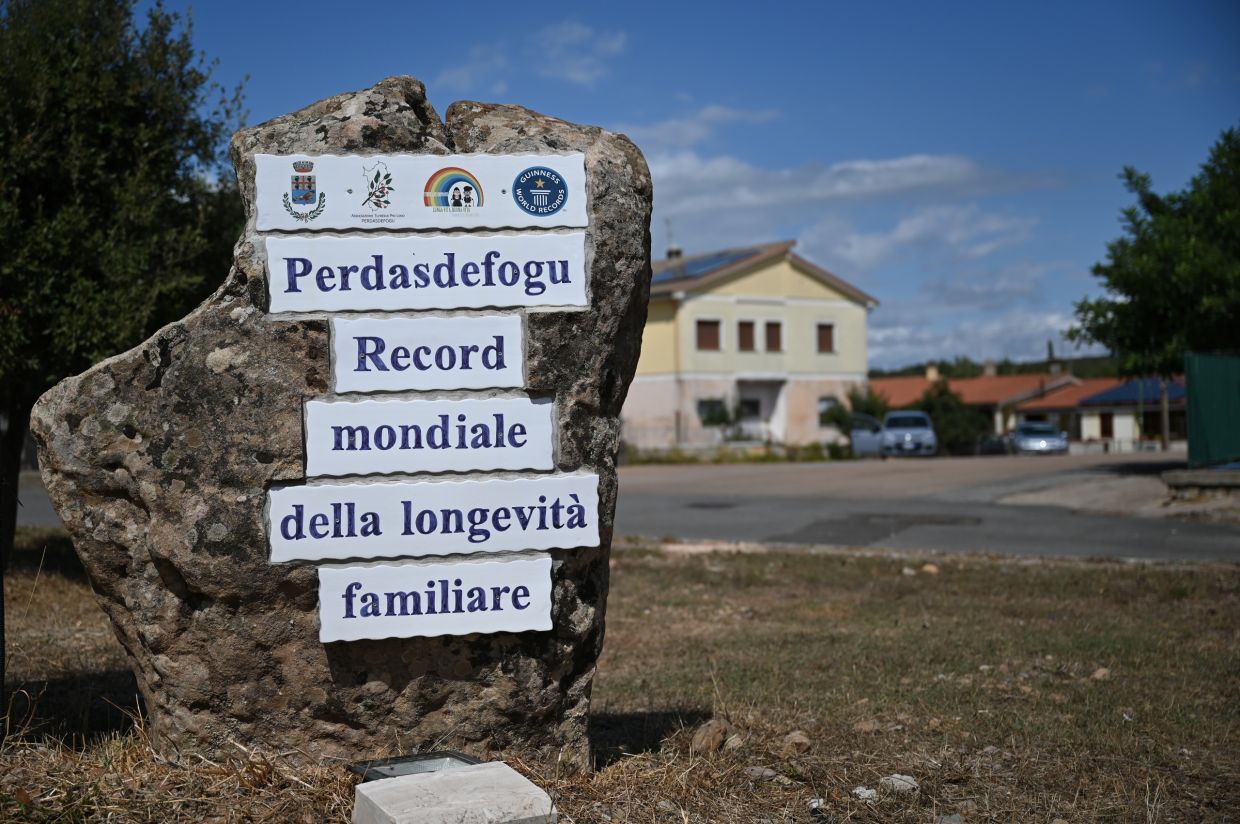(From left) Chillotti, mayor of Perdasdefogu, Stori and Mura. Stori is the village's youngest 100-year-old and celebrated her birthday on Aug 16, 2022. Photo: Salvatore Mura/private/dpa
Perdasdefogu looks like any other Sardinian village with a pre-Romanesque church, central square and charming little shops.
It has all you need, but otherwise seems pretty unremarkable, until you realise it is home to more centenarians than anywhere else in the world.
Get 30% off with our ads free Premium Plan!

(From left) Chillotti, mayor of Perdasdefogu, Stori and Mura. Stori is the village's youngest 100-year-old and celebrated her birthday on Aug 16, 2022. Photo: Salvatore Mura/private/dpa
A plaque at the entrance to Perdasdefogu notes the place's record-breaking status. Photo: Johannes Neudecker/dpa
Italian village with the most 100year-olds
Black and white photos of 100-year-olds citizens are mounted on the houses along Perdasdefogu's main road, stating their names and the year they were born. Photo: Johannes Neudecker/dpa
A photo of Lai, one of nine people over the age of 100 living in Perdasdefogu. Photo: Johannes Neudecker/dpa
Italian village with the most 100year-olds







